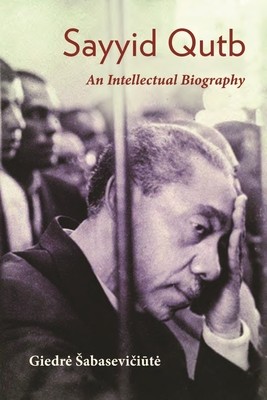
- We will send in 10–14 business days.
- Author: Giedre Sabaseviciute
- Publisher: Syracuse University Press
- ISBN-10: 081563742X
- ISBN-13: 9780815637424
- Format: 15.2 x 22.9 x 2.1 cm, kieti viršeliai
- Language: English
- SAVE -10% with code: EXTRA
Reviews
Description
No Arab historical figure is more demonized than the Egyptian literati-turned-Islamist Sayyid Qutb. A poet and literary critic in his youth, Qutb is known to have abandoned literature in the 1950s in favor of Islamism, becoming its most prominent ideologist to this day. In a sharp departure from this common narrative, Sabaseviciute offers a fresh perspective on Qutb's life that examines his Islamist commitment as a continuation of his literary project. Contrary to the notion of Islam's incompatibility with literature, the book argues that Islamism provided as Qutb with a novel way to pursue his metaphysical quest at a time when the rising anti-colonial movement brought the Romantic models of literature to their demise. Drawing upon unexplored material on Qutb's life--book reviews, criticism, intellectual collaborations, memoirs, and personal interviews with his former acquaintances--Sabaseviciute traces the development of Qutb's thought in line with his shifting networks of friendship and patronage. In a distinct sociological take on Arab intellectual and literary history, this book unveils the unexplored dimensions of Qutb's involvement in Cairo's burgeoning cultural scene.
EXTRA 10 % discount with code: EXTRA
The promotion ends in 23d.12:57:41
The discount code is valid when purchasing from 10 €. Discounts do not stack.
- Author: Giedre Sabaseviciute
- Publisher: Syracuse University Press
- ISBN-10: 081563742X
- ISBN-13: 9780815637424
- Format: 15.2 x 22.9 x 2.1 cm, kieti viršeliai
- Language: English English
No Arab historical figure is more demonized than the Egyptian literati-turned-Islamist Sayyid Qutb. A poet and literary critic in his youth, Qutb is known to have abandoned literature in the 1950s in favor of Islamism, becoming its most prominent ideologist to this day. In a sharp departure from this common narrative, Sabaseviciute offers a fresh perspective on Qutb's life that examines his Islamist commitment as a continuation of his literary project. Contrary to the notion of Islam's incompatibility with literature, the book argues that Islamism provided as Qutb with a novel way to pursue his metaphysical quest at a time when the rising anti-colonial movement brought the Romantic models of literature to their demise. Drawing upon unexplored material on Qutb's life--book reviews, criticism, intellectual collaborations, memoirs, and personal interviews with his former acquaintances--Sabaseviciute traces the development of Qutb's thought in line with his shifting networks of friendship and patronage. In a distinct sociological take on Arab intellectual and literary history, this book unveils the unexplored dimensions of Qutb's involvement in Cairo's burgeoning cultural scene.


Reviews